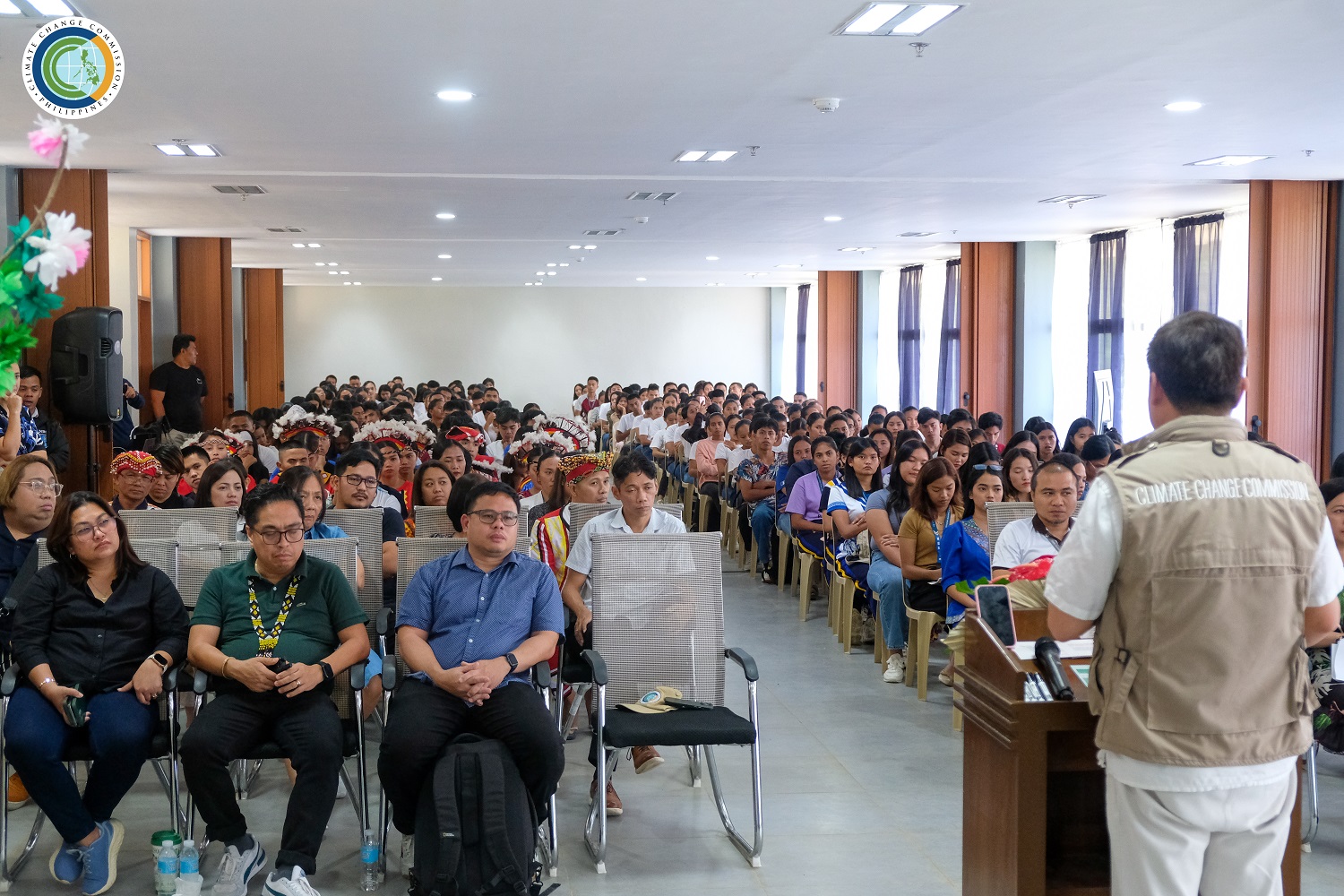
May 20, 2024 Monday

CCC Vice Chairperson and Executive Director Robert E.A. Borje emphasizes the crucial role of the academe, youth and IPs in achieving a climate-resilient and climate-smart Philippines during a forum at the Northern Bukidnon State College.
BUKIDNON, 20 May 2024 — The Climate Change Commission (CCC) emphasized the crucial role of the academe, youth and the indigenous people communities in fostering climate-resilient and developing climate-active leadership at a forum at the Northern Bukidnon State College.
CCC Vice Chairperson and Executive Director Robert E.A. Borje highlighted the urgent need for community-level climate action, underscoring the academe’s indispensable function in catalyzing grassroots efforts across all sectors.
“Education is a powerful tool in the fight against climate change. It equips us with the knowledge and skills to understand complex ecological issues and find innovative solutions. But education alone is not enough. We need action, and that is where you come in,” Borje said during his keynote speech.
He noted the importance of evidence-based research in informing public policies, with the academe serving as a crucial source of data and knowledge. Borje also stressed the academe’s role in raising awareness, fostering dialogue, and inspiring action within communities.
In the Philippines, climate education is integrated into the education system, with subjects across various fields incorporating Disaster Risks Reduction Management (DRRM), Climate Change, and Climate Change Adaptation (CCA) concepts.
Also, the academe contributes in the field of climate research and development, mobilizing Filipino expertise to understand climate change and guide policy and programmatic responses.
The IP communities, on the other hand, play a vital role in managing resources sustainably, conserving ecosystems and biodiversity, and passing down indigenous knowledge from one generation to the next to sustain their communities and the environment.
Borje emphasized the principle of Common but Differentiated Responsibilities and Respective Capabilities, recognizing that individuals have distinct roles based on their resources and capabilities in addressing climate change.
“Sometimes, the challenges we face seem overwhelming, and it's easy to feel powerless. But remember, every climate action counts. Small changes, when multiplied across millions of people, can make a big difference,” Borje encouraged.
The CCC, as the head policymaking body of the Philippines on climate change, is tasked to mainstream climate change within the Filipino populace.
The Commission reiterated its commitment to educating all Filipino people about climate science, its dangers and potential solutions. By harnessing the academe’s capacity to educate, advocate, and research climate-related issues, the CCC aims to foster climate-smart and climate-conscious individuals, industries, and communities across the country.
For more information on the CCC’s climate mainstreaming activities, visit www.climate.gov.ph and www.facebook.com/CCCPhl.